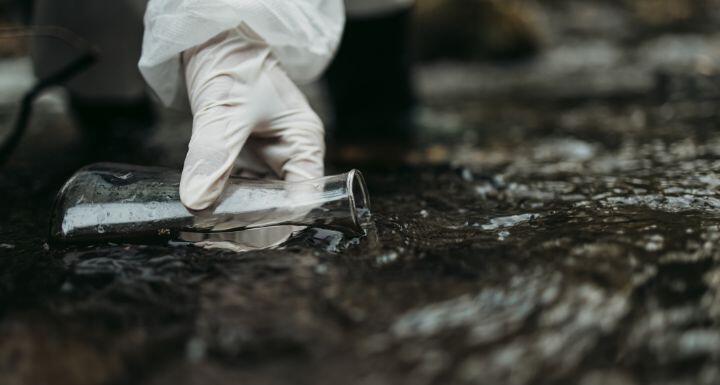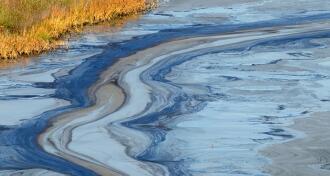By now, you've heard the commercial and can probably say this line in your best "television infomercial" voice: "If you, a family member, or a loved one lived at Camp Lejeune for 30 days or more between the years 1953 and 1987, you may qualify for legal action."
While that is certainly true, understanding exactly which diseases are known to be caused by the water at Camp Lejeune and which diseases might be caused by the water at Camp Lejeune is confusing. This article hopes to make that muddy water a little more clear.
The water contamination at Camp Lejeune and Marine Corps Air Station (MCAS) New River has been linked to a number of diseases and injuries.
Some of these health conditions have been designated by the Department of Veterans Affairs ("VA") as having a "presumptive service connection," meaning the VA will presume that a health condition is directly linked to toxic exposure during military service. That presumption is highly-valued, and without it, the VA may deny benefits.
Certain health conditions also have been identified by the U.S. Department of Health and Human Services Public Health Service, Agency for Toxic Substances and Disease Registry ("ATSDR") as being supported by sufficient evidence or supported by enough research to link the health condition to exposure to the toxic chemicals found at Camp Lejeune. These health conditions have been the subject of extensive studies and testing, which assessed the strength of the evidence supporting causality of adverse health effects from exposures to the drinking water contaminants at Camp Lejeune.
Other health conditions are or may be linked to the contaminated drinking water at Camp Lejeune but have not yet been identified as possessing a presumptive connection to the water at Camp Lejeune. More detailed medical records and evidence are required for these claims. However, those suffering from medical conditions not listed by the VA or not identified by the ATSDR are still encouraged to file claims.

Veterans Affairs (VA) List of Presumptive Conditions for Camp Lejeune Veterans
The Camp Lejeune Justice Act includes a number of health conditions recognized by the Department of Veterans Affairs (VA) as "presumptive," meaning the agency will presume that the water contamination at Camp Lejeune was the cause of the adverse health condition for any veteran sufficiently exposed to the water at Camp Lejeune who has been diagnosed with a condition on the official list.
Below is the VA's current list of presumptive service connection conditions:
- Adult leukemia
- Aplastic anemia and other myelodysplastic syndromes
- Bladder cancer
- Kidney cancer
- Liver cancer
- Multiple myeloma
- Non-Hodgkin's lymphoma
- Parkinson's disease
Health Conditions Linked to Camp Lejeune Water Contaminants
Scientific and medical evidence collected by governmental organizations such as the ATSDR, Environmental Protection Agency (EPA), and more also has concluded that the water at Camp Lejeune was likely responsible for a number of health conditions suffered by veterans, family members, civilian workers, and others who lived and worked at the Marine Corps Base Camp Lejeune and Marine Corps Air Station New River.
The main chemicals that contaminated drinking water at Camp Lejeune include:
- Perchloroethylene, or Tetrachloroethylene (PCE)
- Trichloroethylene (TCE)
- Vinyl Chloride
- Benzene
These chemicals, along with others, were found in the drinking water supply at Camp Lejeune.
The following persons have been included in the studies involving those who may have been exposed to the chemicals at Camp Lejeune:
- Children who lived onbase with their families
- Adults who lived onbase
- Workers employed at the base, but who lived off-base
- Marine personnel who trained and lived onbase
The ATSDR has identified the following conditions as being sufficiently linked to one or more of the chemicals found in the water at Camp Lejeune:
![]() Kidney Cancer
Kidney Cancer
Trichloroethylene (TCE) exposure has been established as a causal factor for kidney cancer. TCE is a known carcinogen that is most strongly linked to kidney cancer.
Non-Hodgkin Lymphoma
Three chemicals in the Camp Lejeune water supply have been linked to Non-Hodgkin's Lymphoma: PCE, TCE, and benzene. Non-Hodgkin's Lymphoma begins in the lymphatic system, forming too many white blood cells and triggering the growth of tumors.
Multiple Myeloma
Multiple Myeloma, a plasma cell cancer, in former Camp Lejeune residents has been associated with TCE exposure and benzene exposure. Treatment for Multiple Myeloma has proven to be expensive and difficult for patients.
Leukemias
Scientific research has indicated that exposure to volatile organic compounds (VOCs), such as trichloroethylene (TCE) and other dry cleaning solvents, have been found to increase the incidence of leukemia. Benzene also has been proven to cause all types of leukemias.
Liver Cancer
Liver cancer has been a common diagnosis for those exposed to Camp Lejeune water contamination. Liver cancer in Camp Lejeune residents has been linked to vinyl chloride and TCE. Previous scientific studies have indicated that vinyl chloride can lead to liver damage and other conditions such as Hepatic Steatosis (Fatty Liver Disease).
Bladder Cancer
An increased risk of bladder cancer has been linked to tetrachloroethylene, also known as perchloroethylene (PCE) exposure. Multiple scientific studies have been conducted on industrial workers and others exposed to PCE, and all have pointed out a positive correlation between the chemical and bladder cancer diagnoses.
Parkinson's Disease (& other neurobehavioral conditions)
TCE exposure at Camp Lejeune has been associated with an increased risk for Parkinson's Disease. Several scientific and medical studies have linked TCE to Parkinson's Disease.
End Stage Renal Disease
TCE and PCE exposure also has been linked in various studies to the occurrence of end-stage renal cancer.
Systemic Sclerosis/Scleroderma
The available evidence is sufficient to conclude that systemic sclerosis/scleroderma is at least as likely as not to be causally related to TCE exposure.
Cardiac Defects
Sufficient evidence exists to conclude that cardiac defects are causally related to TCE exposure.
Other Adverse Health Effects Linked to Toxic Water at Camp Lejeune
There are a number of other health conditions, not currently mentioned in the VA list of presumptive service connection diseases and not currently identified by the ATSDR as having a causal relationship that is at least as likely as not, which are nonetheless common among people who were exposed to the contaminated water at Camp Lejeune.
For many of these health conditions, the link to the chemicals found in the water at Camp Lejeune simply has not been studied to the extent of other health conditions.
Those who resided at or worked at Camp Lejeune and were subsequently diagnosed with these diseases MAY STILL QUALIFY FOR COMPENSATION.
Below is a list of these other adverse health effects:
- Birth defects
- Brain Cancer/CNS Cancers
- Breast Cancer
- Cervical Cancer
- Choanal atresia
- Esophageal Cancer
- Eye Defects
- Hepatic Steatosis
- Infertility
- Lung Cancer
- Miscarriage
- Myelodysplastic syndromes
- Neurological effects
- Neurobehavioral effects
- Ovarian Cancer
- Pancreatic Cancer
- Prostate Cancer
- Rectal Cancer
- Renal toxicity
- Soft Tissue Cancer
- Other health conditions
People with Non-Presumptive Injuries Can Still Qualify for Legal Action
To reiterate, those who were diagnosed with a disease or medical condition that is not listed on the VA list of presumptive service connection health conditions for Camp Lejeune or that is not currently identified by the ATSDR as having an "at least as likely as not" connection to the chemicals in the water at Camp Lejeune CAN STILL QUALIFY for a lawsuit.
The variety of chemicals present in the water at Camp Lejeune have been linked to dozens of tragic health conditions and are not limited to the list presented by the VA or the health conditions studied by the ATSDR. The ATSDR's 2017 report only addresses certain illnesses, and the ATSDR's investigation and analysis are ongoing. The fact a health condition is not included in the current ATSDR report or is not on the VA's list of presumptive diseases does not mean there is no link between the contaminated water at Camp Lejeune and that health condition.
If you or a loved one were diagnosed with a medical condition linked to the water contamination at Camp Lejeune, but it is not present on the VA list or the ATSDR list of presumptive illnesses, you should still contact an attorney to file a claim.
It is crucial, however, that you collect all relevant information regarding your potential lawsuit: medical records and bills, military service records, and proof you were at Camp Lejeune between August 1, 1953, and December 31, 1987, for no less than 30 days, and any other documentation that can help with your claim.

Can I File a Lawsuit Even if I Was Not Injured?
If you, a family member, or a loved one resided at or worked at Camp Lejeune for 30 days or more (consecutive or non-consecutive) between August 1, 1953, and December 31, 1987, but have not yet been diagnosed with a health condition associated with the water contamination, you might not qualify for a lawsuit outright.
However, those who have not yet been diagnosed with a medical condition linked to the water contamination at Camp Lejeune may qualify for medical monitoring, if it becomes available. This means that if a qualifying diagnosis is discovered in the future, you could qualify for compensation or legal action at a later date. At this time, medical monitoring is not available through the PACT Act.
Those who have not yet been diagnosed with medical conditions or are not yet evidencing signs of injury after consuming contaminated water at Camp Lejeune are still encouraged to share information with attorneys in case medical monitoring becomes available.








